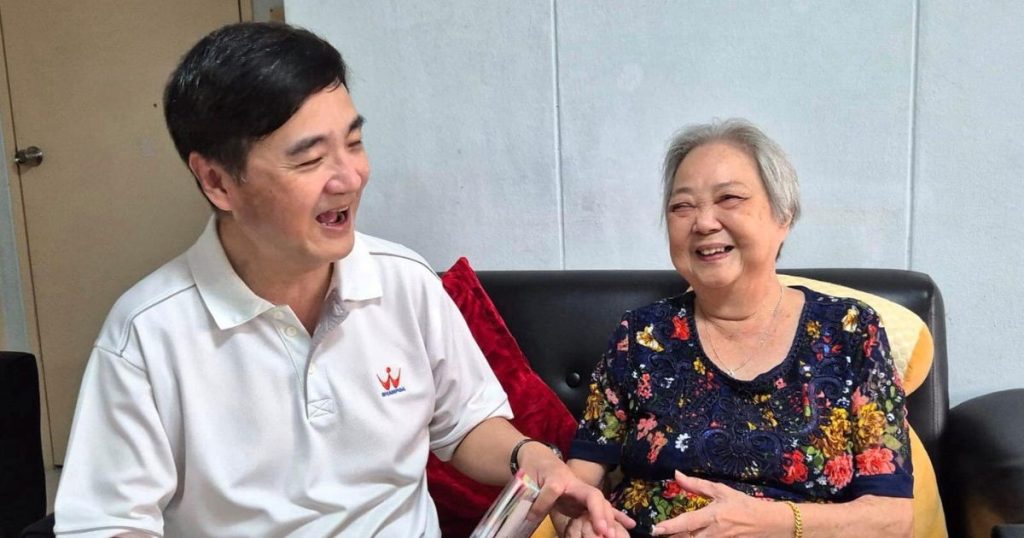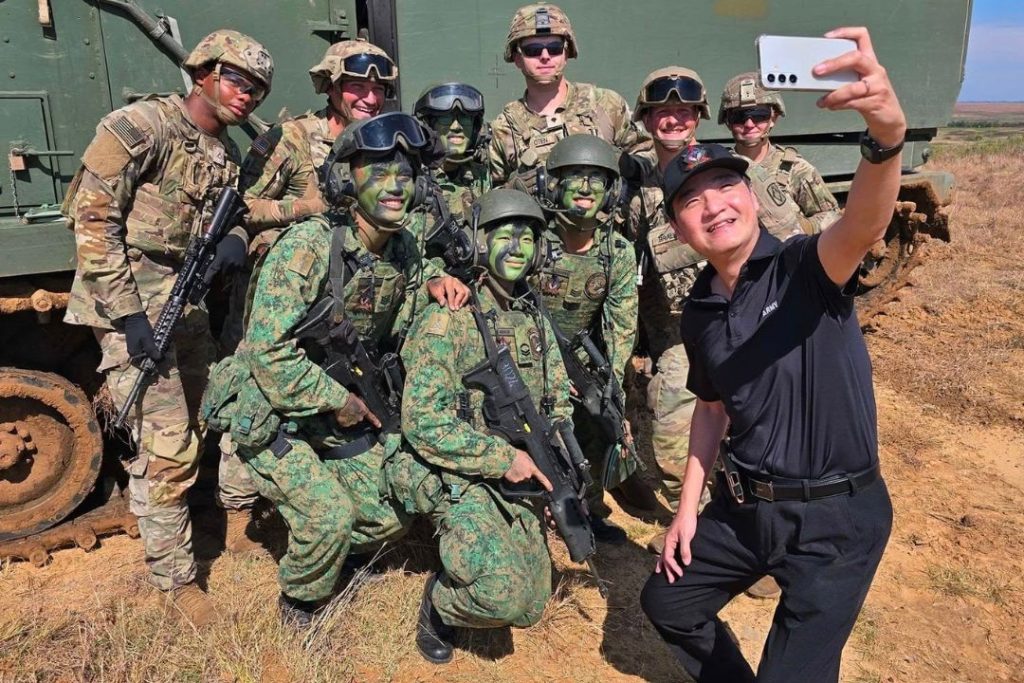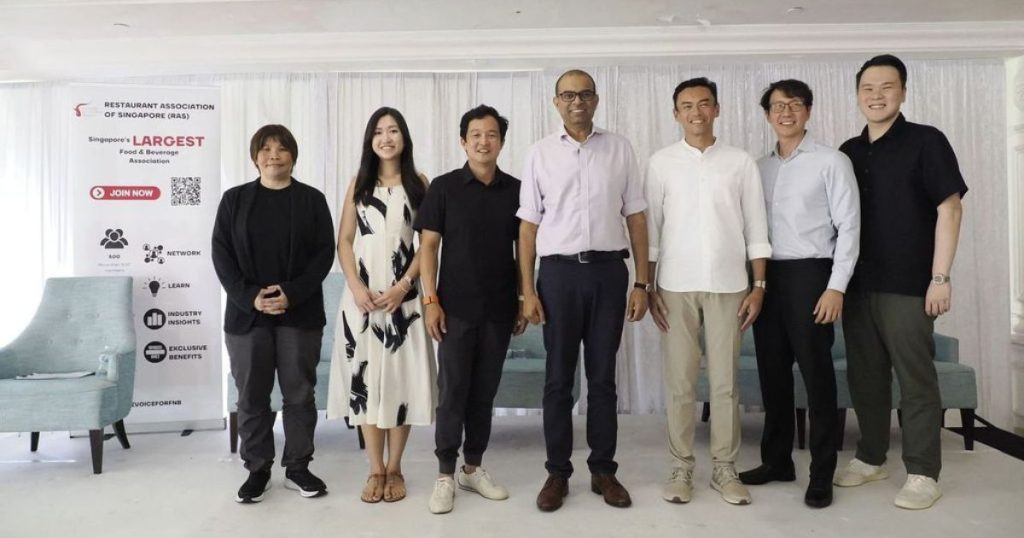In person, retired MP Heng Chee How is soft-spoken and unfailingly polite.
During an hour-long interview with Petir, his gentle demeanour and thoughtful responses make it clear why former parliamentary colleague Minister Josephine Teo described Mr Heng as the “elder brother” she never had.
“He is a complete gentleman, fully honourable. You can try but you will never find a nasty bone in him.” said Mrs Teo in April. “And he has come to be very well-loved by the residents here [Whampoa], and we going to miss him terribly.”
Thus, when the peaceable Mr Heng stood up and vigorously defended the National Trades Union Congress (NTUC) during a Parliamentary debate last September, it was for a matter very close to his heart.
He firmly rebutted unfair criticisms made against unionists in an unrelated debate on the Platform Workers Bill.
| Excerpt from Mr Heng’s response in Parliament “Mr Giam thanked our union leaders for taking good care of our workers. We thank him for that. At least he acknowledges that. But I think in saying that, then you must also give due respect to our union leaders. They are not stooges. [Applause.] Their hearts are in the right place. They do all this for their fellow workers. That is what they are doing this for. And you acknowledge that. And all our unions are doing that. And every union that is affiliated to the NTUC chooses to do that. And the NTUC has a symbiotic relationship with the PAP so that we can convey the views and the needs of the workers to our political partner, so that when they become the ruling party, when they win the trust of Singaporeans and have the mandate to be the ruling party, that the interests of workers in this country will always be taken care of, be given great priority. You look at the track record of the PAP. For all these years that it has been in government, what has it delivered for this country? What has it delivered for the workers? Has it sold out the workers? Has it embarrassed our union leaders? So, you are talking about some theoretical construct. Look at the results. Look at the context in which we are debating today. This very Bill that your party is supporting, where does this come from? [Does] this comes from a symbiotic relationship where both sides are trying to undermine and throw the workers under the bus? No. You supported it because it is good for the workers. Is this the only thing that is good for the workers? No. We have decades of track record. Why do you think the workers will support their unions who affiliate themselves to the NTUC? It is because we work for the workers. So, when we say every worker matters, NTUC means it. And that goes to also when we go into a symbiotic relationship – we do so for the sake of the workers.” |
The 63-year-old former labour Member of Parliament said he felt compelled to correct Opposition claims on the parliamentary record.
“You can debate the merits or otherwise of the [Platform Workers] Bill.” said Mr Heng.
“But to sneak in an attack on the symbiotic relationship. First, it’s unrelated to the bill, and second, wrongly portray it as some way of subverting the interests of workers. It couldn’t be further from the truth, and I just felt that I had to call it out.”
“It was both to do right by our unionists, NTUC, and our symbiotic relationship,” he said.
“If you have expressed a view in Parliament, whether due to a lack of knowledge or intentionally, I felt it was important to at least factually correct it at that point that afternoon,” he added.
Fostering tripartism harmony in Singapore requires “constant tendering

Some have the misconception that unions must clash with companies to advocate for workers’ rights. To which Mr Heng posed a rhetorical question: if parents constantly fought each other, would such an environment be conducive for the development of the child?
“So, the idea is [to be] pro-worker, pro-business and pro-Singapore at the same time. Easier said than done. Because if you can do that, then it’s a win-win-win situation. It’s sustainable. You can create a virtuous cycle,” he said.
However, fostering tripartism harmony in Singapore requires “constant tendering”, as Mr Heng pointed out. With the changing environment, it can never be guaranteed, but it presents the best chance.
“If employers refuse to play ball with the government and unions, the unions refuse to see that you need businesses to have jobs for the workers. And if the government is always fighting with the unions and having horrible policies for the businesses and the economy is going down the tubes, how is that helpful to anybody’s prospects?” he questioned.
He stressed that the real test lies in delivering on promises, because that is the only way to earn the trust of workers.
Mr Heng championed the rights of older workers

As a union leader, Mr Heng played a pivotal role in championing the rights of older workers. He fought for employment protections to be strengthened, advocated fair employment guidelines, and pushed for improved CPF contribution rates for this demographic.
Mr Heng also lobbied for policies supporting older workers. They include raising the re-employment age and enhancing their employability and retirement adequacy.
When he joined NTUC in his 30s, unionists questioned the need for a statutory retirement age, wondering why people were forced to work longer, he recounted.
However, two decades later, perspectives shifted, and people now inquire about raising the retirement and re-employment age ceilings.
“People have come to realise it is not a question of forcing [anyone]. It is a question of thinking ahead and understanding that many [individuals] will have the health, skills, inclination, and need to continue to work when the time comes. So, how do you provide that chance and choice [for those who wish to remain employed]?”
Investing in our defence capabilities instills confidence

Mr Heng, who served as Senior Minister of State for Defence since 2018 before he retired, said it had been a privilege to work at the Defence Ministry. During his tenure, he had the opportunity to visit units and observe how our military capabilities have developed.
“It’s the kind of thing that gives you hope and confidence in our defence,” he said. “Yet, the knowledge remains that it takes relentless investments to grow and keep it up. We must never make the mistake of thinking there is no need to defend ourselves—there is,” he warned.
Mr Heng also commended the Singapore Armed Forces for performing its organisational role well when called upon to assist during the COVID-19 pandemic.
“This is a strength of our country, not something to boast about, but something that gives us quiet confidence. We know we can organise ourselves very well, adapt and move swiftly. That is a capability.”
Apart from his defence portfolio, Mr Heng has held other ministerial roles, serving as Minister of State for Trade and Industry, National Development, Health, and the Prime Minister’s Office (PMO). He was the Senior Minister of State in the PMO from 2011 to 2018.
At MTI, Singapore strengthened its economic ties with Southeast Asia, China, and the Middle East following the SARS outbreak.
During his tenure at the Ministry of Health, Mr Heng worked towards helping improve health outcomes for Singapore’s ageing population. The government has continued to invest in helping elderly Singaporeans live longer, healthier, and more active lives.
“The quiet work of the MOH is central to our capacity preservation and enhancement because all that we have are people. If you have a sickly people, you can’t have a strong country.”
During his time at MND, Mr Heng realised the importance of refining the housing system, as outcomes can differ drastically from past experiences.
He recounted the 1997 recession that hit Singapore, resulting in a plummeting demand for public housing and leaving many units unsold. It took years for the excess supply to be taken up.
In the subsequent recession, however, the opposite occurred – demand did not decline but instead increased.
“This teaches you that prior experience does not mean the next one is going to be the same,” he said. “The next one could be completely different. So, you must continue to refine your systems.”
Mr Heng found every ministry he served unique and interesting.
“I don’t say this out of diplomacy. Each ministry is different. The domain knowledge is very different,” he said. “If you are honest, there are many things to learn, and many people who are very prepared to teach you if you are willing to learn. So, I found each posting a great learning opportunity that enriched my development.”
Regarding advice for those entering politics, Mr Heng humbly said he had none to offer, as “everyone knows their reasons for stepping forward”.
“One thing we should continue to support is to find good people. Don’t be selfish. Serve while you can, do your best in your season, and when it’s time to pass the torch, do so gracefully and gratefully. Then, whoever takes over can run the distance again.”
Also read: A family he’s had for 27 years. Heng Chee How on what Whampoa’s residents mean to him




